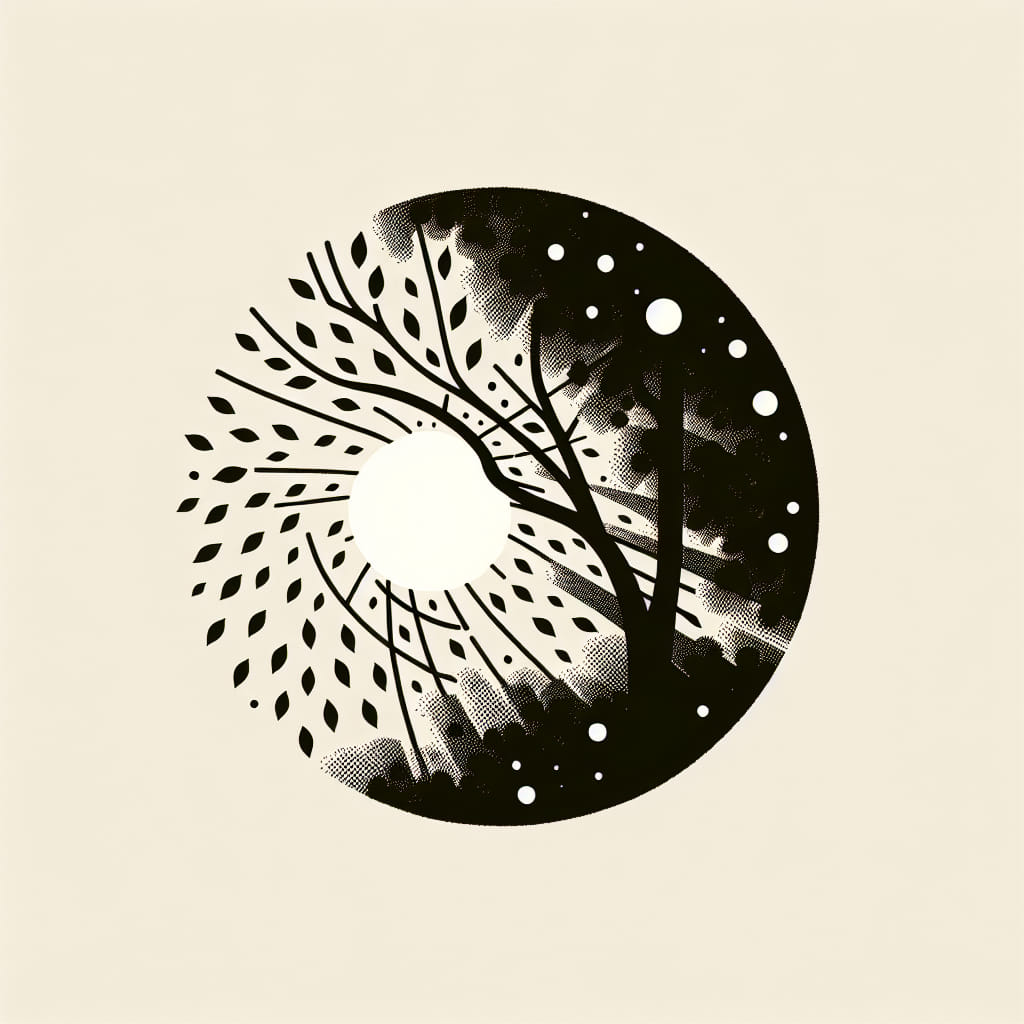· word of the day · 4 min read
Komorebi: Uncovering Natures Beauty in Japanese Language
Explore the beauty of the Japanese language with the word komorebi, which describes the enchanting sunlight filtering through trees.

Discovering unusual words in a new language can be like finding hidden gems. They offer a peek into the culture, history, and environment of the people who speak that language. For Japanese learners, diving into unique words can enrich your vocabulary and give you a deeper understanding of Japan’s rich traditions and natural beauty. Today, let’s explore a fascinating Japanese word related to nature and the environment: komorebi.
Komorebi (木漏れ日)
Pronunciation: koh-moh-reh-bee
Meaning: The interplay of sunlight and leaves when sunlight filters through the trees.
Cultural Significance
The word komorebi is a beautiful example of how the Japanese language captures the essence of nature in a single term. Japan has a deep-rooted appreciation for nature, reflected in its art, literature, and daily life. The concept of komorebi is not just about the light filtering through the trees; it’s about the delicate balance between light and shadow, the dance of sunlight on leaves, and the serene feeling it evokes.
In Japanese culture, nature is often seen as a source of beauty and inspiration. The word komorebi embodies this sentiment perfectly. It reminds people to pause, look up, and appreciate the simple yet profound beauty of sunlight filtering through the foliage.
How It’s Used
Komorebi is often used in poetry and prose to evoke a sense of tranquility and connection with nature. Here are a few examples of how this word can be used in sentences:
公園で木漏れ日を見ながら散歩するのが好きです。
Kōen de komorebi o minagara sanpo suru no ga suki desu.
(I like to take walks in the park while watching the sunlight filter through the trees.)森の中で木漏れ日を感じるのはとても癒されます。
Mori no naka de komorebi o kanjiru no wa totemo iyasaremasu.
(Feeling the sunlight filtering through the trees in the forest is very soothing.)木漏れ日の中で読書をするのは最高のリラックス方法です。
Komorebi no naka de dokusho o suru no wa saikō no rirakkusu hōhō desu.
(Reading a book under the filtered sunlight is the best way to relax.)
Idiomatic Expressions and Sayings
While komorebi itself is not commonly found in idiomatic expressions, its concept is often celebrated in Japanese haiku and tanka poetry. These forms of poetry frequently highlight the beauty of nature and the changing seasons, with komorebi serving as a poetic image to convey natural beauty and fleeting moments.
Role in Literature and Folklore
Komorebi appears in various works of Japanese literature, often symbolizing moments of peace and reflection. In the writings of famous authors like Yasunari Kawabata and Haruki Murakami, nature often plays a central role, and the imagery of komorebi can be found subtly woven into their descriptions of the natural world.
In folklore, while komorebi itself may not be the focus, the reverence for nature and the spirits residing in trees and forests is a common theme. This reverence underscores the importance of nature in Japanese culture and how deeply it is ingrained in the collective consciousness.
Reflecting on the Learning Journey
Learning words like komorebi can greatly enrich your language learning experience. It opens up a window into the cultural and natural world of Japan, allowing you to appreciate the subtleties and nuances that make the language so beautiful. By understanding such words, you not only expand your vocabulary but also gain insight into the values and aesthetics of Japanese culture.
Next time you find yourself in a forest or park, take a moment to observe the sunlight filtering through the leaves and think of the word komorebi. Let it remind you of the beauty of nature and the intricate ways in which language can capture such moments.
For more interesting words and to enhance your Japanese learning journey, check out Glosa. It’s a great tool to help you discover and learn more about the Japanese language.
Happy learning!




